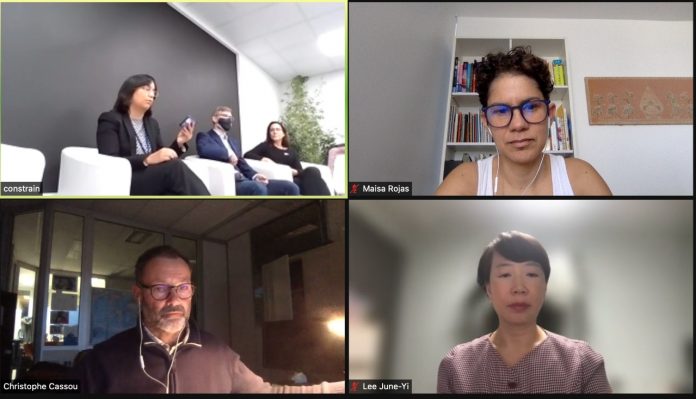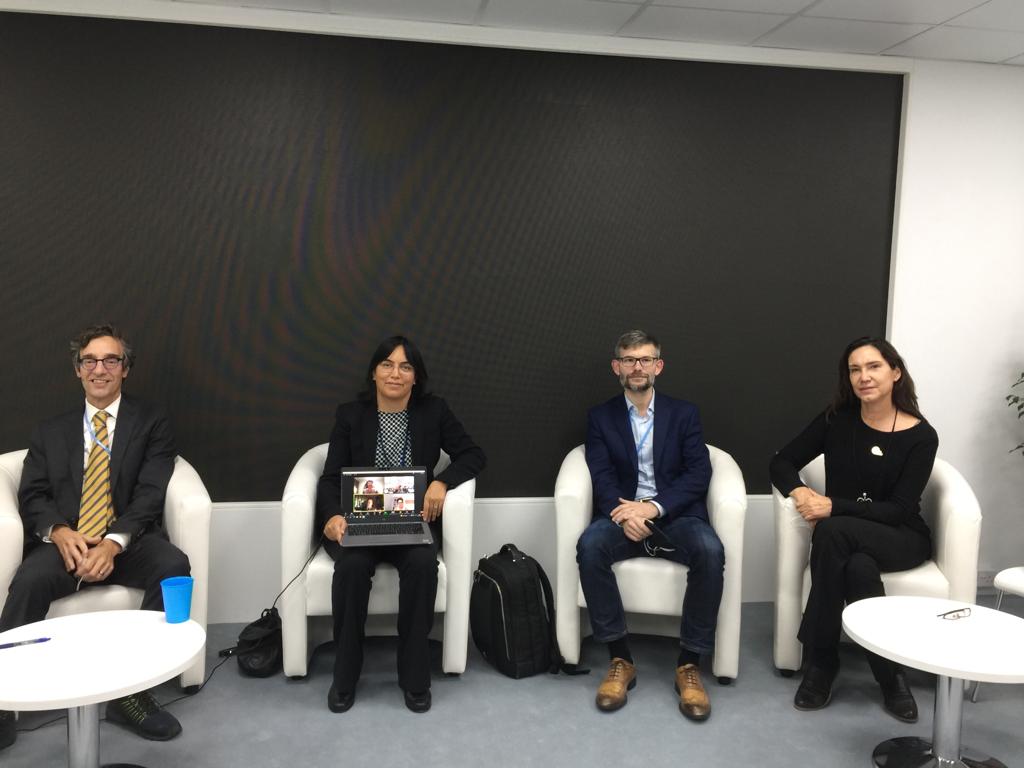
An international group of leading climate scientists urge parties involved in the COP26 negotiations to fully acknowledge the latest and most comprehensive assessment of climate change science, included in the last IPCC reports.
The science is clear – immediate, strong, rapid, sustained and large-scale actions are necessary to hold global warming to well below 2°C and pursue efforts to limit it to 1.5°C, and thereby limit future risk and needs for adaptation over the next decades to centuries.
This means stronger and faster emission reductions between now and 2030 are needed. Following the path of current Nationally Determined Contributions (NDCs), the remaining carbon budget for 1.5C, as quantified by IPCC AR6 will soon be exhausted.
We would like to see the risks posed by an ever warming world as well as the urgency and opportunities for mitigation and adaptation strongly reflected in the final COP26 cover decision.
Linked is an open letter from the international climate science community. All signatories are self-identified members of the climate community, signing as individuals rather than on behalf of their host institution.

Climate scientists from at least 43 countries have signed, many of whom have served as lead authors on past IPCC reports. Two previous IPCC co-chairs have signed: Susan Solomon and Thomas Stocker. Jean Jouzel, former IPCC vice chair, has also signed. Valérie Masson-Delmotte, IPCC co-chair of the present report has also signed.Prof. Dr. Sonia Seneviratne, ETH Switzerland said: “The latest IPCC science shows the benefits of limiting global warming to 1.5°C and the need for immediate climate action to keep this goal within reach. Without sizable reductions of CO2 emissions and reduced use of fossil fuels within 4-5 years, pledges to limit global warming to 1.5°C cannot be credible.”
Dr June-Yi Lee, Pusan National University, South Korea said: “The latest physical climate information shows we still have a chance to limit global warming to below 1.5°C. But it requires bending the curve of greenhouse gas emissions immediately and continuously and the window of opportunity is closing.”
Prof Piers Forster, University of Leeds, UK said: “Strongly welcoming IPCC science into the main COP text allows parties showing weak ambition to be challenged and helps the UNFCCC build a strong monitoring and reporting framework to turn promises into actions. National 2030 targets need strengthening now and need to be revisited before COP27.”
Dr Pep Canadell, Exe. Dir. Global Carbon Project said: “The exceptional climate emergency we are living in requires equally exceptional national commitments and actions to bend down the trend of ever-accumulating greenhouse gas emissions in the atmosphere. With the well established science on what needs to be done to stabilize the global climate, we have never been so well placed to make it happen: transform the science knowledge into commensurable actions, not words.”
Dr Christophe Cassou, Centre National de Recherche Scientifique, France said: “The latest IPCC report has never been so clear and nobody can negotiate with the laws of physics. Every additional ton of greenhouse gases from fossil fuels burning and deforestation will lead unequivocally to further warming and enhanced risk for human society and natural ecosystems. Every fraction of warming avoided limits these risks with co-benefits in health, food security, biodiversity, justice and equity issues. The future is not determined; it is in our collective hand, not tomorrow, but now. This requires lucidity, honesty and ethics because today’s decisions not only commit us, but also matter for future generations.”
Dr Joeri Rogelj, Imperial College London said: “Since the start of climate negotiations in the 1990s, science has provided the foundation, the evidence, and the tools for climate action. Today, science tells us that urgent action and global emissions reductions are needed to keep warming to the safety limits set by governments in the Paris Agreement and keep 1.5°C alive. Current pledges do not yet live up to that ambition. The COP26 outcome will be strongest and most convincing if it reflects these scientific facts.”
Dr Maisa Rojas, (CR)2, University of Chile said: “There are so many similarities between climate change and the global pandemic: how interconnected we are, the value of science and cooperation, the need for resilient societies, understood as the ability to address shocks and crises. Let’s learn from the pandemic and show the same determination to tackle the climate crisis”.
Dr Paulina Aldunce, (CR)2, University of Chile said: “The IPCC report released in August gives us clearer understanding about the past, present and future climate, highlighting the urgency to act and plan now for the near-term but also for the future in the long-term. Addressing the causes of climate change through mitigation is key but not sufficient if we want to protect society, what is needed is to increase our ambition in adapting to the impact of a changing climate.”
Read the open letter here



